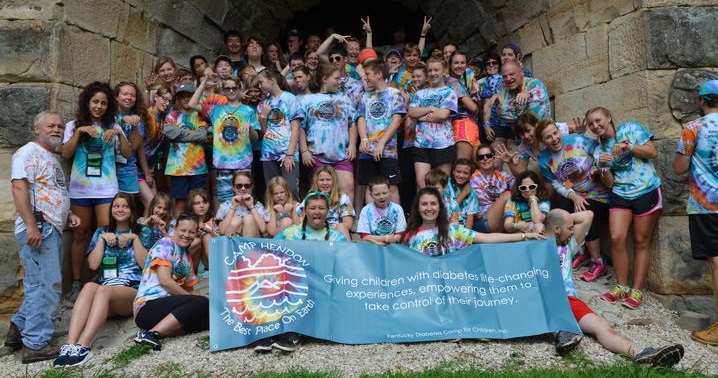2 UK students work to teach kids, others about diabetes

Desiree Gipson, a UK senior majoring in dietetics, was diagnosed with Type 1 diabetes just a few months ago. Her friend Eric Gettler, a third-year student in the UK College of Pharmacy, has lived with it since he was just 2 years old.
Diabetes affects more than 30 million Americans, including nearly half a million in Kentucky. Although most people are familiar with Type 2 diabetes, Gipson and Gettler are working to teach others about the difference between Type 1 and Type 2 and to debunk the stigma surrounding the disease.
Unlike Type 2 diabetes, Type 1 can’t be prevented. It happens when the body does not produce enough insulin, so Type 1 diabetics require regular insulin injections. Type 2, in contrast, is a problem with the way the body responds to insulin. Some Type 1 diabetics inject insulin into the soft tissue of the stomach or arm, and others use insulin pumps that supply a steady amount of insulin into the body through a small tube. Although it can appear at any age, Type 1 diabetes most commonly occurs in children and adolescents.
This past summer, Gettler and Gipson volunteered as counselors at Camp Hendon, a weeklong summer camp that gives children with Type 1 diabetes the opportunity to connect with other diabetics. As part of their training, volunteers practice important diabetes-management skills, such as testing blood glucose levels. A normal blood glucose reading is less than 200 mg/dL.
Finding answers at UK Barnstable Brown Diabetes Center
When Gipson was first diagnosed with Type 1 diabetes, her blood glucose was over 400 mg/dL. After an emergency room visit and initial misdiagnosis, her results continued to worsen. That’s when she was referred to Brian Fields, APRN, of the UK Barnstable Brown Diabetes Center.
"He was so nice, so informative,” said Gipson. “He answered all the questions I had, and we worked together to set goals.”
Gettler has been a patient of Dr. Jackson Smith at Barnstable Brown for more than 20 years. Gettler is thankful to the doctors at Barnstable Brown for teaching him how to self-manage his diabetes.
“Barnstable Brown is where I learned how to give myself shots and how to use my insulin pump; now I'm transitioning to the continuous glucose monitor,” Gettler said. “Seeing the technology advance and learning how to use it all has been amazing.”
Dr. Smith attested to the special bond that forms between the endocrinologists and educators of Barnstable Brown and their patients.
“It’s a privilege to have the opportunity to follow patients like Eric through many stages of their lives," Smith said. "It’s rewarding to experience children and adolescents maturing into healthy self-management of their diabetes. My role moves from physician to educator to coach. Eric is a good example of someone who does not let his diabetes stop him from living a normal life. He has now taken on the role of mentoring younger patients. I am proud to be associated with him.”
Ask questions
Both students stressed the importance of asking questions about Type 1 diabetes.
“If you see someone giving themselves a shot, don’t freak out. They could just be giving themselves insulin,” said Gipson. “Talk about it. If you have questions, make an effort to learn.”
Gettler shared a similar sentiment.
“Don’t make assumptions and don’t give unsolicited advice about what someone should or shouldn’t be eating," he said. "Type 1 diabetes is very different from Type 2. Educate yourself and use what you learn to educate others."




